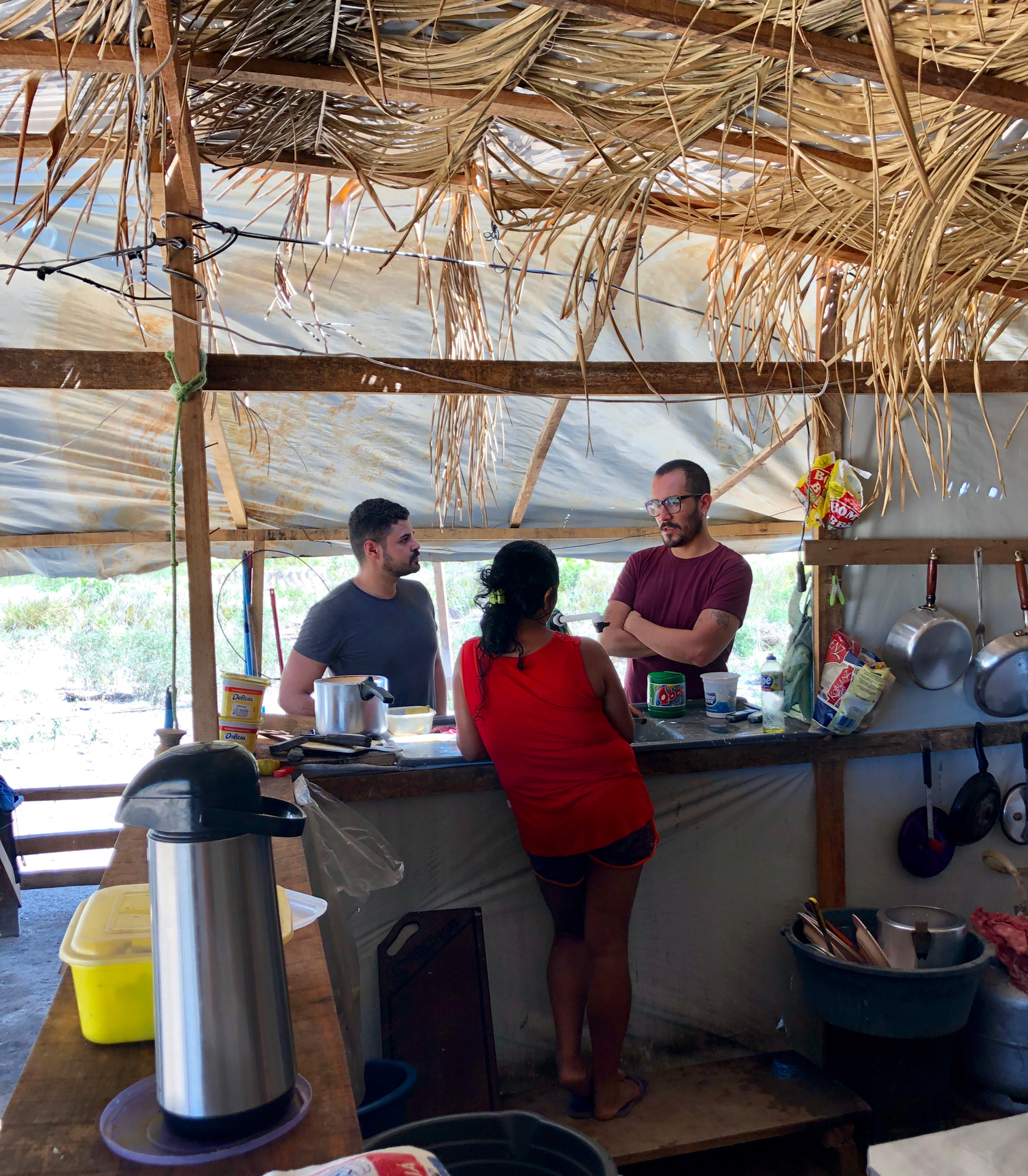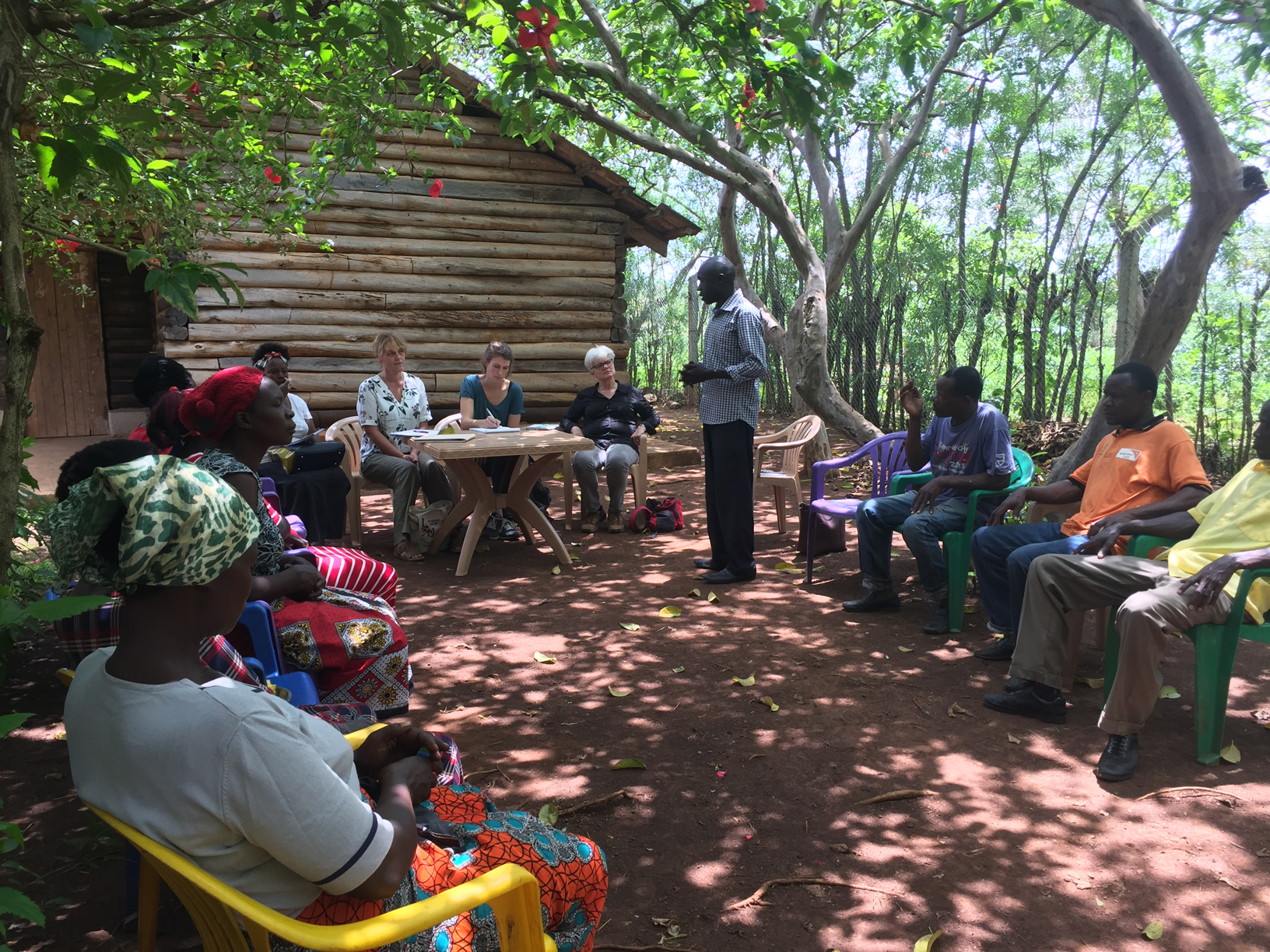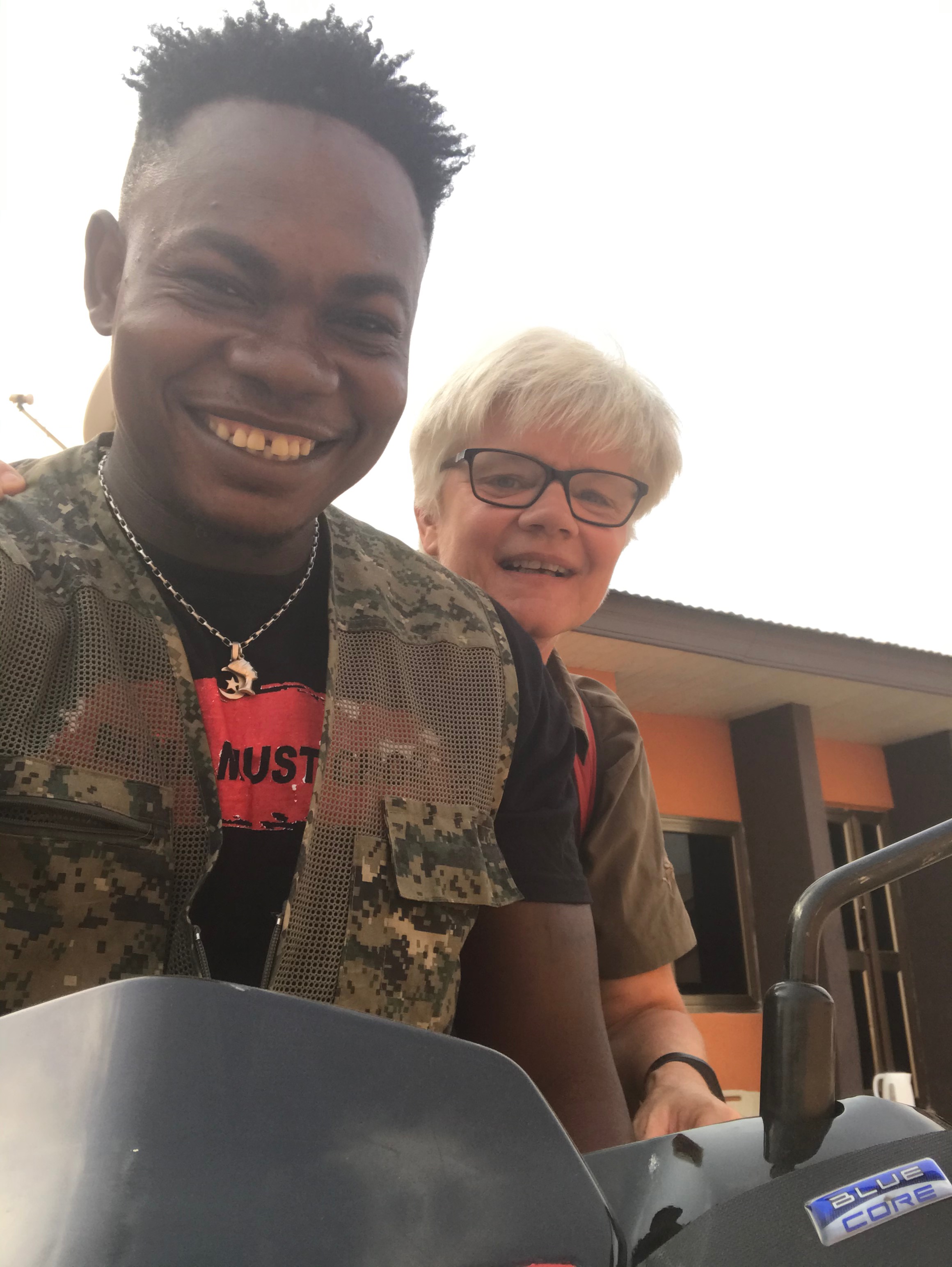Arts of Co-Labouring
Co-labouring is an expression of how we ‘do things’ in the Gold Matters project to learn – about mining, gold, one another, places, and sustainability. It is a means to share and see things in different ways, learning from people’s expertise and life experiences. This creates sharing between us, but also exposes differences. How different members of the team co-labour together in groups can vary – related to the task, place, cultural expectations, and personalities; also, to how we portray issues – talking, showing, filming, photographing, and WhatsApp messaging. What becomes important is how co-creating knowledge helps us work together and elicit understanding on mining and sustainability. This is demonstrated by how miners create images in their mines to share with researchers; in the sharing of mining techniques across regions - provoking fascination by miners interested in different machines; and in focus group discussions sharing knowledge on different topics. Through co-labouring, the geologies, social relations, working practices, and landscapes can be revealed. Into this mix, enters Christophe Sawadogo, making the most beautiful paintings in ways that enroll others into the act of art – children, women, researchers, drivers, and miners. And enters too Nii Obodai, photographer and observer, standing back with ‘slow photography’ and his Leica to take black and white images. Others also, leaders of co-operatives and organizations, ever practical, mobilizing researchers as well as miners. Through co-labouring, our aspirations and thoughts for the future become apparent.
Amazon
Doing fieldwork is an immersive way for academics to exchange knowledge, establish new collaborations and sometimes maintain long-term relationships in the field, and capture the perspectives of local actors. Gold miners and others who live and work in the mining communities, illustrate their everyday working life in their own words, drawings and tools. Old photos become an opportunity to talk about the history and motivation of people coming to the Amazon. Formal interviews and occasional conversations occur both inside and outside the mines, including cooperative workplaces, state offices, and local government headquarters. A coffee break in the mine, garimpo in Brazilian Portuguese, is an opportunity for approaching a cook in her kitchen, gaining insight on what it means to be a woman working in a male-dominated context. Building trustworthy relationships is at the core of understanding how garimpeiros envision their futures.
Uganda
In Uganda, we have worked (co-laboured) with miners and others in a transdisciplinary way to gain nuanced, well-informed perspectives on issues of transformation and sustainability in gold mining. Undertaking transdisciplinary research has meant sharing our different perspectives and expertise, learning and training together. Researchers have not sought to use their non-local expertise during fieldwork to ‘help’ anyone, in development terms, believing that knowledge and researchers’ skills as knowledge-makers are most important. Instead, Environmental Women in Action in Development (EWAD), the NGO within our project, supports local miners with sustainability action. Our co-labouring holds power dynamics, both due to differences between our backgrounds, and due to our ‘encounters’ with the political economy of mining. Research in mining communities exposes obvious inequalities of wealth, of course, but beyond this, local extractive politics mean we have conducted research under the eyes of government minders, and we are aware of the danger of miners being harassed by officials within their daily working lives.
West Africa
In West Africa, co-labouring of gold miners and researchers occurs in specific mining terrains: the underground takes center stage, but from the surface, it is impossible to see how gold is located and extracted below. Even though researchers do their utmost to learn by participating in activities, for various reasons, underground workspaces are often difficult to access. How to share experiences and knowledge? Filming together - miners filming us and for us - making maps, and drawings together led to eye-opening conversations and provided insights into the hardships, team spirit, and expertise as well as dangers underground. Travel across mining terrains is also important for co-labouring and the sharing of experiences: miners visiting each other’s mining sites, and researchers bringing information on mining practices from other continents. It is in the mobility of ideas, people and techniques that existing practices can be balanced against alternatives elsewhere and possible futures in the here and now.
Amazon
Long-time field work relations
Miner Maria do Socorro and anthropologist Marjo de Theije have known each other since 2006, when Socorro was working in a shop and bar in the Lawa gold fields. Socorro shows the surroundings of the new mine she and her husband are starting up together with other Brazilian garimpeiros.

Conversations at the kitchen table
After dark, the conversations continue at the kitchen table, exchanging pictures of common friends and Maria’s grandchild. They tell of many moves between gold fields in Suriname and Brazil, which she has made in the past two years, since prosperity has deserted her team of miners.

Working together
Co-labouring may be literally working together in the mine. In this picture, engineer Ramon Finkie, who works with the Gold Matters researchers in Suriname, handles the jet.

Understanding miners’ perspectives on mercury
A garimpeiro describing the use of mercury during the process of gold extraction. The dispersion of mercury into the natural environment (through air and water) represents a risk to human and ecosystem’s health. Reducing the use of mercury is one of the major revolutions needed for ASGM.

Coffee break with a mine cook
Carlos Henrique and Jorge Calvimontes have a coffee break with the cook in a mine in Castelo dos Sonhos. This is a way of approaching women’s perspective of the mining world, which is mostly male-dominated.

Mine safety is vital
Giorgio de Tomi discussing mine safety and occupational health hazards with the inspection team of the mining cooperative in Lourenço.

Tell me about the future
This photo was taken by the president of the COOGAL (Cooperative of Garimpeiros from Lourenço). Carlos Henrique and Giorgio de Tomi are talking with an associate miner about technology and the future of the gold mining in the district.

Overlooking a patchwork landscape
A garimpo owner points at the map of the region Esperança 4. From his house on the top of a hill, he showed us the patchwork landscape he lives in: large and small-scale gold extraction, agriculture, and cattle-ranching create constant tensions over land use issues.

A life in mining
While describing the gold extraction process, this garimpeiro shared his personal experiences. He migrated from the south of Brazil to Suriname and the Guianas, and then back to Brazil, to the Amazonian state of Pará. Despite the good money, all the difficulties of the job made him hope for another path for his children.

Underground mine development plan
Field research in Lourenço. Miners and researchers sharing knowledge about shaft design at an underground mine.

Recovered mercury
A garimpeiro showing a little bottle containing the mercury recovered after the use of a retort. The retort keeps toxic vapours inside, and recycles the chemical for future uses. In Brazil, it is cheap and safe, but its implementation still faces several obstacles as many miners don’t believe that mercury is harmful.

Gold diviner
The president of one garimpeiros’ cooperative from Peixoto de Azevedo demonstrates how a dowsing rod works. It is used to discover gold. According to him, the movement of the sticks indicates which rock contains gold.

Life stories
An elderly lady showing an old photo of her family to the Gold Matters’ researchers. She shared her personal life stories about how, like many other families in the early 1980s, she migrated from the poorest region of north-eastern Brazil to work in gold mines.

Go ahead!
Sabine Luning ready to visit a mine. Transport in the goldfields along the Lawa River is mostly with quads, well suited for difficult jungle paths. Driver Lato has been working here for fifteen years, first as a handyman, then a security man for a concessionaire, then a driver, and now as a miner.

Walking and talking
Walking as a research method. Here Jorge Calvimontes and the manager of an underground mine in the Vale do Rio Peixoto go a long way.

Uganda
1/3 Children’s Rights
Gold Matter’s team member, Margaret Tuhumwire (Director of Environmental Women in Action for Development) addresses a workshop, advocating against child labour.
2/3 Visiting Syanyonya Artisan Miners’ Alliance
At SAMA demonstration mine in a meeting with members. Co-operative members describe their work and challenges.
3/3 All eyes on mercury free
Richard Kidega of EWAD demonstrates use of a Gold Konka, to a group visiting SAMA. When borax is used the gold can be extracted from concentrate without the use of mercury.



1/4 Reading the rock: ore and waste
Miners of Busia United Small-scale Mining Company (BUSCO) extracted a part of the gold vein from their mine. While yesterday the yield was both vein and ‘waste-rock’, today it is mostly waste-rock. Women from BUSCO teach Esther van de Camp to find small ore pieces in between the rocks they consider waste.
2/4 The gold vein, this is it!
In this rock, white gold vein (hydrothermal quartzite) is situated amidst grey hard-rock (metamorphic quartzite). The gold is invisible and miners know how to read the rocks. The shiny tiny specks are called ‘fool's gold’ - it is actually pyrite.
3/4 Making the invisible visible
Miners that work on the Location License of Tiira Small Scale Mining Association (TISSMA) teach Esther the details of a technology: the timbered shaft. The type of mine consists of shafts (vertical) and tunnels (horizontal) built with timber from eucalyptus trees. It is built underground and the miners demonstrate it for visualization.
4/4 Hanging around. Getting to work
After a minor landslide, caused by rain, Esther participates in the work of re-clearing the mine from the slipped down soil. Miners form a line and each of them uses their spade to bring the soil up to the miner above him - typically this work is done by men.




1/3 How to use a GPS
At Mbarara University of Science and Technology, Ronald Twongyirwe and Upton Nuwagira teach Lorenzo D’Angelo, Esther and Eleanor Fisher (behind camera) how to use a GPS and to incorporate it into fieldwork.
3/3 Ground truthing
Ronald records features on location to calibrate with remote sensing images, helping aid interpretation of the data.



1/3 Clara leads a focus group
Women discuss the contribution of gold mining to their household incomes with Clara Atuhaire. Household economies center on agricultural production but families also gain income from mining, which has taken place near the village for many years.
2/3 Taking charge
Participatory mapping to demonstrate features of the landscape around a village. When asked who would volunteer to draw, there was silence and then this elderly woman (name protected) took charge. Her charisma was striking in a context with stark gender inequalities.
3/3 Don’t forget the meals!
Lorenzo, Ronald and local facilitator, Innocent Babweteera, wait for lunch in a break during field work. A time to relax and share thoughts.



1/3 Being part of the (mining) human chain
The anthropologist finds himself spontaneously involved in the human chain created to extract the earth collected at the bottom of a hole.
3/3 Mulling over sustainability dilemmas
Lorenzo interviews a young miner who comments on the difficulties of the work, but also on the kind of impact that gold mining produces on the environment. For miners’ faced with the need to find a form of income for themselves and their families, environmental issues partly take a back seat.



Have you ever seen gold? Mining in south-western Uganda past and present by Lorenzo D’Angelo
A niece interviews her uncle (pictured), which provides an opportunity for him to recall moments of his life with flashbacks, and to reflect on the present and future of his community. An experiment in making an ethno-fiction, unfortunately cut short by the covid-19 pandemic.


West Africa
1/3 Filming with Ebenezer Knight Mannah
Tarkwa-based gold miner Ebenezer is one of the main co-labourers of Gold Matters' team members Sabine Luning and Robert Pijpers. He is foreman in an underground mine run by a Ghanaian license owner together with Chinese investors and engineers.
Ebenezer is filming underground and explaining the connections underground between informal small-scale miners, called Galamsey in Ghana, and the more formal mining operations.
2/3 Filming with Ebenezer Mannah II
Here Ebenezer has descended underground together with Robert in the mine where he works, collaborating in the production of visual material.
3/3 Watching underground footage
The film was made by Israel, son of Benjamin Ampiah one of our main co-labourers. Since 2019, Benjamin’s crew has been rebuilding the old infrastructure in tunnels before they could start mining early 2020. Here, Israel is just back from filming underground and miners explain the footage while we are watching together.



1/2 Piece of wood to explain the geological situation
Since underground work is invisible on the surface, Zakari Imrana explains it by posing a piece of wood on the ground. He visualizes how miners dig their vertical shafts, and how they will start tunneling horizontally once they can tackle the gold matter deeper down.
2/2 Tracing the orebody
Underground orebodies cannot be seen from the surface. Here, Zakari is tracing the direction of the underground orebody on his motorbike and marks GPS points on an App called SW Maps. In this way we learn the geological situation in which the small-scale miners delve.


Drawing on the sand
Miners explain to Nfaly Diama, Moussa Koné, Luigi Arnaldi and Cristiano Lanzano how, in the system of bè, small pits targeting alluvial deposits are organized in rows and at fixed distance between each other. Underground tunnels follow certain directions to avoid collapse or conflict between teams.


1-3/3 Preparing for a blast
The first photo portrays our co-labourer, Haruna Bashiru, who has made the other photos too. He is portraying the work of a blast-man underground. First miners have dug holes in the wall (called the face) they want to crack. The blast-man will meticulously insert the dynamite in the holes and tie the dynamite with ropes connecting it to the detonator. The work is dangerous and requires great skill.



1/3 Miners on the move to co-labour with miners
Sometimes people need to travel to share knowledge and experiences. Northern and southern Ghana meet, when Zakari from Kejetia discusses mining matters with Benjamin, who has come to visit from Tarkwa.
2/3 Travelling between mine and home in company
Zakari is mining in Kejetia but Sabine accompanied him to Obuasi, where his parents live. Zakari introduced her to his family and showed her the mining town.
3/3 Mobility of knowledge - Comparing mining practices
Miners are interested in mining practices elsewhere. The movement of knowledge and miners is a characteristic of gold mining worlds. Miners and researchers share an interest in comparing and exchanging knowledge. Here Zakari and Marjo de Theije are watching photos of mining taken in Suriname, a very different mining world compared to northern Ghana.



1/3 Escort for the researchers - on the road in good company
Researchers cannot always access mining sites easily, since these are often located far out in the bush, and strangers need local companions to vouch for them. Here, Alizeta Ouedraogo, Marjo de Theije and Sabine Luning are accompanied by a security detail. A safe trip and most rewarding exchange of knowledge were the result.
2/3 Learning in line-up
For researchers, doing is the best way of learning and they like to join the action. Here, Marjo is participating in the line-up of women moving stones from mine to heap to the crusher.
3/3 Selfie with shanking girls
After crushing stones, the powder still contains small stones. Sifting out these larger grains which will still need to be milled is called ‘shanking’. The women carrying out these tasks identify as ‘shanking girls’. Their work is rewarded with cups of small stones containing gold material. Here, the work is finished and it is time to celebrate with selfies.


